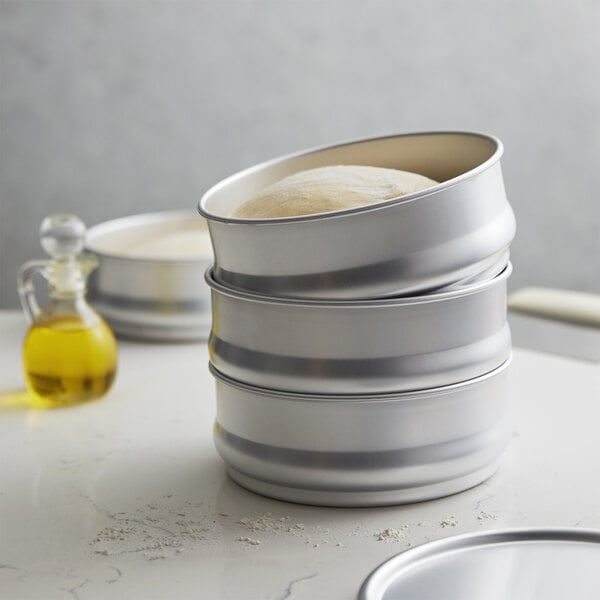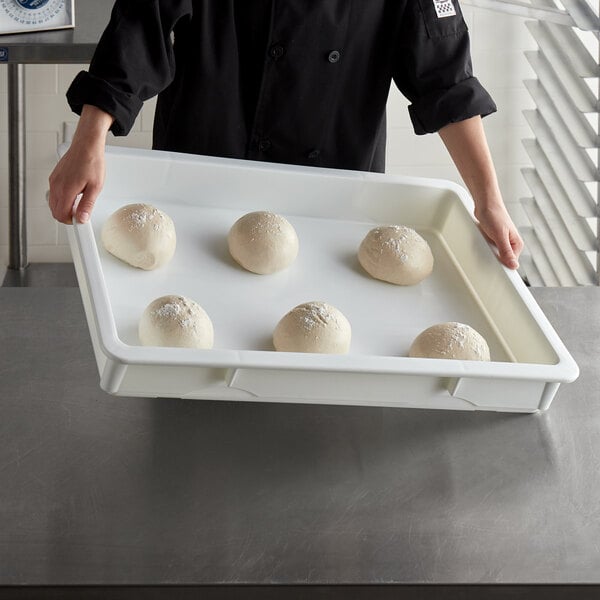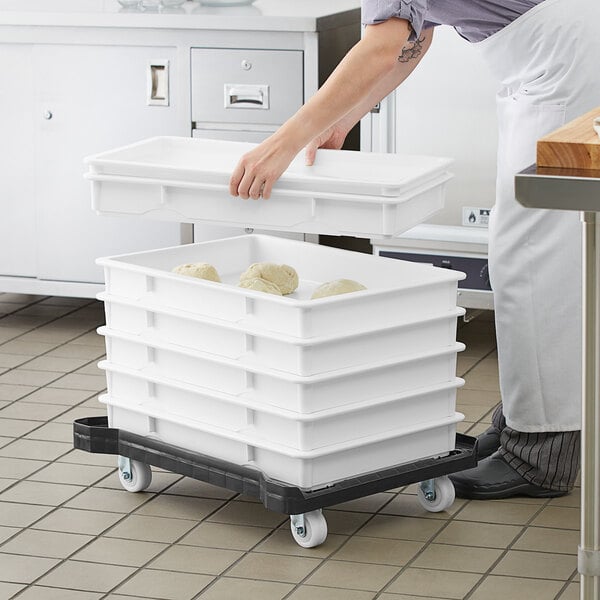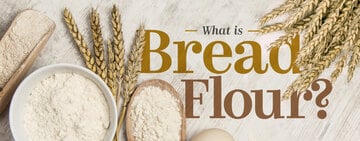
A Guide to Dough Proofing Boxes
If you want to make better sourdough and yeasted bread or pizza dough, a proofing box is a useful tool for creating the optimal environment for your dough to rise. These versatile boxes are essential for proofing, storing, and maintaining the freshness of dough and baked goods, making them a valuable asset for pizzerias and bakeries.
Shop All Proofing Boxes
What Is a Proofing Box?
Proofing boxes, also known as dough proofing boxes or proofing pans, are essential tools for bakeries, pizzerias, and other foodservice establishments that need to proof dough for bread, pizza, and other baked goods. These boxes provide a controlled environment with consistent humidity and temperature levels to help dough rise properly.
During proofing, the yeast in the dough metabolizes sugars and produces carbon dioxide gas and alcohol. This fermentation process not only helps the dough rise but also develops complex flavors in the bread. Proofing dough in a controlled environment regulates the fermentation process, ensuring that the dough rises evenly and consistently. This helps prevent uneven pockets or holes in the bread and results in a uniform texture throughout.
Dough Proofing Box Purchasing Considerations
When purchasing a proofing box for your commercial kitchen, the two most important factors to consider are the shape and material of the box.
Proofing Box Shapes

Proofing boxes come in either a rectangular or round shape. While the choice mostly comes down to preference, consider the shape that best suits your production needs. Whether you prioritize individual control over dough proofing or require the capacity to proof multiple batches at once, both round and rectangular proofing boxes offer valuable benefits for your bakery or restaurant.
- Round Proofing Boxes: Round proofing boxes are ideal for proofing individual balls of dough. This can be beneficial if you are proofing different types of bread at the same time or if you do not need to proof a lot of bread daily. The round shape helps retain the dough's shape during the proofing process. With round proofing pans, you have more control over each ball of dough, allowing you to monitor the proofing process closely. Many feature a convenient self-stacking design, making them great for storing tall towers of prepared dough.
- Rectangular Proofing Boxes: Rectangular proofing boxes are larger and can accommodate multiple balls of dough at once. This makes them a great choice for high-volume establishments where proofing large quantities of dough is necessary. They are also versatile storage containers and can be used for storing and transporting desserts, produce, and other food items. When paired with a compatible lid, many rectangular proofing boxes are stackable for your convenience.
Proofing Box Materials
When choosing a dough proofing box, it's important to consider the material it is made from. Each material offers unique benefits that cater to different kitchen environments and needs. Here are some common types of dough proofing box materials:

- Polypropylene: Polypropylene proofing boxes are light weight and chemical-resistant, making them ideal for busy commercial kitchens.
- Polycarbonate: With excellent impact resistance, polycarbonate proofing boxes ensure long-lasting performance in demanding kitchen settings. They resist acids and oils and can handle a wide temperature range.
- ABS Plastic: ABS plastic proofing boxes offer a balance of strength and affordability. They are easy to clean and maintain, making them a practical choice for various baking operations.
- Teflon® Co-Polymer: Teflon®-coated dough proofing boxes feature a non-stick surface that prevents the dough from sticking, simplifying the proofing process. Their heavy-duty construction can stand up to long-term commercial use.
- Aluminum: Aluminum proofing pans resist corrosion and refrigerate quickly. They are lightweight yet sturdy and feature a self-stacking design convenient for proofing and storing multiple pans at once.
- Fiberglass: Fiberglass proofing boxes are known for their excellent insulation properties, maintaining consistent temperature levels during the proofing process. They are also durable and stain-resistant, making them easy to clean.
Proofing Box Accessories

Once you've selected the best dough proofing box for your business, it's time to think about accessories you'll need to maximize efficiency. For example, if you have a high-volume pizza shop, you may need to transport multiple dough boxes with a dolly. Our selection of lids, dollies, and dough proofing cloths will help your dough prepping process run as smoothly as possible.
- Proofing Pan and Dough Box Covers: It is recommended to purchase lids for each proofing box. Lids provide a tight seal and help to keep the dough fresh longer by guaranteeing proper proofing and dough moisture levels in the box. Save time preparing dough for a few days at a time and storing the excess in your lidded box. Additionally, stacking dough boxes on top of each other with lids minimizes storage space in your kitchen.
- Pizza Dough Box Dollies: A bustling pizzeria or bakery will need to have multiple types of dough ready at any given time for hungry customers. With high demands like these, it may be in your best interest to purchase multiple dough boxes. Designed to help preserve space and save transportation time, these dollies can withstand large amounts of weight up to 300 lb.
- Proofing Cloths: These cloths are a great way to protect your dough during the proofing process. Proofing cloths trap moisture closer to the food to make crusts get softer and chewier than if they were left uncovered and absorb any additional moisture to prevent your breads and rolls from becoming soggy.
Whether you are a professional baker or pizza shop owner, a proofing box is a valuable investment that can improve the quality and consistency of your bread, baked goods, and crust. By providing the ideal conditions for dough fermentation, a proofing box can help you achieve perfect results every time.
Related Resources

May 2024 WebstaurantStore Coupon Code
Spring is in full bloom, and to celebrate Webstaurantstore is offering a variety of amazing monthly deals! In May, you'll discover incredible prices on beverageware, dessert ingredients, and food packaging supplies. Take a look at our selection of sale items below and don't forget to enter the code MAYFLOWERS at checkout to enjoy savings of up to 30%! We're also excited to introduce the new Webstaurant Rewards® Visa Business Card ! Sign up for a new card today and start earning rewards on every WebstaurantStore purchase. Use Coupon Code: MAYFLOWERS Finest Call Premium Tropical Puree Mix 1 Liter reg. $4.19 Each $3.77 Shop Now Blue Henry Dried Blood Orange Slices - 20+ Slices per Box reg. $12.49 Each $8.74 Shop Now Fee Brothers 5 fl. oz. Oran

Dough Conditioner: What It Is and How to Use It
One of the challenges you may encounter if you're looking to start a bakery is achieving consistency between your products. With all the ingredients that go into a loaf of bread like fats, milk, sugar, and flour, along with other external variables, it can be a feat to get two loaves looking the same. That is where dough conditioners come in! We'll explore what dough conditioner does and how it can save you time and effort in your day-to-day routine. Shop All Dough Conditioners What Is Dough Conditioner? Dough conditioner is any baking ingredient that improves the production and consistency of a dough. The purpose of a dough conditioner is to simplify and expedite the bread-making process. Depending on the ingredients in a dough conditioner

What Is Bread Flour?
When creating the ideal texture for loaves of bread, many bakers turn to bread flour. But what exactly is bread flour, and how is it different from all-purpose flour? Bread flour is a high-protein flour that is specifically designed for baking bread . With its strong gluten content, bread flour gives bread a chewier texture and helps it rise higher. Read on to learn the characteristics of bread flour, what it's used for, and how it differs from all-purpose flour. Shop All Bread Flour What Is Bread Flour Used For? Bread flour is a high-protein flour that typically contains between 12% - 14% protein and is designed for baking yeasted bread. The high protein content means that bread flour has more gluten in it, which makes the dough more elast
- Topics 1364
- Industrial 55
- Troubleshooting Guides 21
- Restaurant Management 129
- Bar Management 57
- Catering Tips 37
- Bakery Management 42
- Food Trucks & Concessions 49
- Advertising & Marketing 37
- Eco-Friendly Tips 11
- Facility Layout & Design 42
- Coffee Shop Tips 29
- Installation & Maintenance 52
- Janitorial & Pest Control 30
- Safety & Sanitation 88
- Startup Tips 104
- Menu Design 10
- Kitchen & Cooking Tips 84
- Hospitality Management 24
- Pizza & Sandwich Shop Tips 36
- Smallwares 37
- Food Prep 90
- Tabletop Items 17
- Disposables 22
- Calculators & Tools 6
- Consumables 52
- Warewashing & Laundry 19
- Cooking Equipment 92
- Food Storage & Refrigeration 51
- Beverage Equipment 35
- Office Supplies 6


